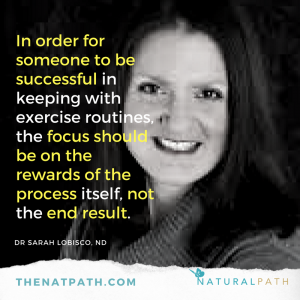Let’s Look at Ways That Positive Transformation Can be a Sustainable Experience

In Part I, I reviewed the ineffectiveness of making a resolution that is based on deprivation versus thriving for one’s highest potential. I discussed the difference between wanting to be healthy as a means to be a more fulfilled person over a superficial goal of weight loss to fit into an idealized and disordered societal ideal. Now, let’s look at some ways that transformation for the better can be a sustainable experience.
The Many Factors of Change
In my blog on Essential Oils for the New Year, I stated that the determinants for creating changes in health may be complex and multi-factorial. For example, a 2010 research synthesis through the Health Maintenance Consortium (HMC) found the following intersecting factors needed to all be considered for “effective strategies for achieving sustainable health promotion and disease prevention”:
- context (personal characteristics, political context, culture, and societal/environmental surroundings)
- current behavior (wellness and risk behaviors, stress management and coping strategies, and health screening practices)
- settings (clinic, community, work, and healthcare)
- mechanisms of change (knowledge, self-efficacy, behavioral skill building, and social reinforcement)1
In another article on achieving and preserving healthier outcomes, the author presented a “behavior change pathway.” It also considered various interactions of several factors. These included: an individual’s goals and motivations, acknowledging and building skills, and brainstorming and problem solving how to overcome obstacles that would deter success. In this model, the health practitioners offer support throughout the transformational steps within a societal context. All of these aspects should be accounted for as a comprehensive and inclusive means for maintaining goals.2
Focusing on the Rewards Within the Process
In a recent podcast, “The Importance of Strength Training with Sal Di Stefano,” from Revolution Health Radio with Chris Kresser, the theme of lasting change in relation to fitness goals was discussed. In order for someone to be successful in keeping with exercise routines, the focus should be on the rewards of the process itself, not the end result. 3
Mr. Di Stefano used the analogy of picking out a Christmas tree.3 The experience of getting the tree is the real joy. Although the decorated tree is a beautiful object to enjoy, the result is not as rewarding as the experience. The family time of bundling up and gathering in the car, chatting along the way, the search for the perfect tree, rigging it to the car, and coming home to hot cocoa is the fulfillment of internal contentment that can’t be found in silver trimmings and glitter.
It is the celebration of a job well done by singing carols around the selected tree and intimate conversations of holidays past that are treasured for years to come. The decorated conifer, well, that’s the end result, that just gets recycled after its use is no longer needed.
What does this have to do with New Years’ Resolutions?
As mentioned in this podcast, people don’t want to stick with something they hate, movement, or otherwise. If one has to strive to lose weight and be miserable in the process, there’s only so much staying power that eats up willpower in participating in daily dreaded actions. Similarly, eating a diet you hate and being so extreme in a pursuit for health that you miss out on life is not a path most people choose for the long-term.
As I previously stated, “medical and fitness experts may even praise these extreme measures,” but this is a tough road to follow. Elevating health and diet as the most important moral measure of a human being is forgetting the even greater wellness implications of living within a community and enjoyment of an optimistic and harmonious life! I wrote a whole series on this concept of healthism, which you can find here and here.
A Gentler, Kinder, and More Fulfilling Approach
What if this year, you decided, rather than choosing a resolution that focuses on your perceived flaws and means of fighting your body, instead you choose to embrace something that will enhance the beautiful person you already are? As I stated in part I, relaxation, self-compassion, and living in a state of optimism is a validated means of reaching even greater states of holistic health.
When we do things we enjoy, our life is better, we make choices out of love, not fear, and we thrive, rather than just survive
Essential oils can also be used as gentle tool of support during transition. I wrote a series on how essential oils can be used during the process of overcoming unhelpful behaviors. Furthermore, specific blends of essential oils can rebalance emotions and help to lift the blocks preventing one from moving forward. This is because of their holistic effect on our biochemistry, psychology, and physiology.
May 2018 be a year of positive change for you, creating more wholeness for greater happiness and living a vital life.
Here’s to a year of an enjoyable, fulfilling, process of transformation!
References:
- Ory MG, Smith ML, Mier N, Wernicke MM. The Science of Sustaining Health Behavior Change: The Health Maintenance Consortium. American journal of health behavior. 2010;34(6):647-659.
- Young S. Healthy Behavior Change in Practical Settings. The Permanente Journal. 2014;18(4):89-92. doi:10.7812/TPP/14-018.
- Chris Kresser. The Importance of Strength Training—with Sal Di Stefano. Revolution Health Radio December 6, 2017.
Image Copyright: <a href=’https://www.123rf.com/profile_rawpixel’>rawpixel / 123RF Stock Photo</a>
 Sarah Lobisco, ND, is a graduate of the University of Bridgeport’s College of Naturopathic Medicine (UBCNM). She is licensed in Vermont as a naturopathic doctor and holds a Bachelor of Psychology from State University of New York at Geneseo.
Sarah Lobisco, ND, is a graduate of the University of Bridgeport’s College of Naturopathic Medicine (UBCNM). She is licensed in Vermont as a naturopathic doctor and holds a Bachelor of Psychology from State University of New York at Geneseo.
Dr. LoBisco is a speaker on integrative health, has several publications, and has earned her certification in functional medicine. Dr. LoBisco currently incorporates her training as a naturopathic doctor and functional medicine practitioner through writing, researching, private practice, and through her independent contracting work for companies regarding supplements, nutraceuticals, essential oils, and medical foods.
Dr. LoBisco also enjoys continuing to educate and empower her readers through her blogs and social media. Her recent blog can be found at www.dr-lobisco.com.
